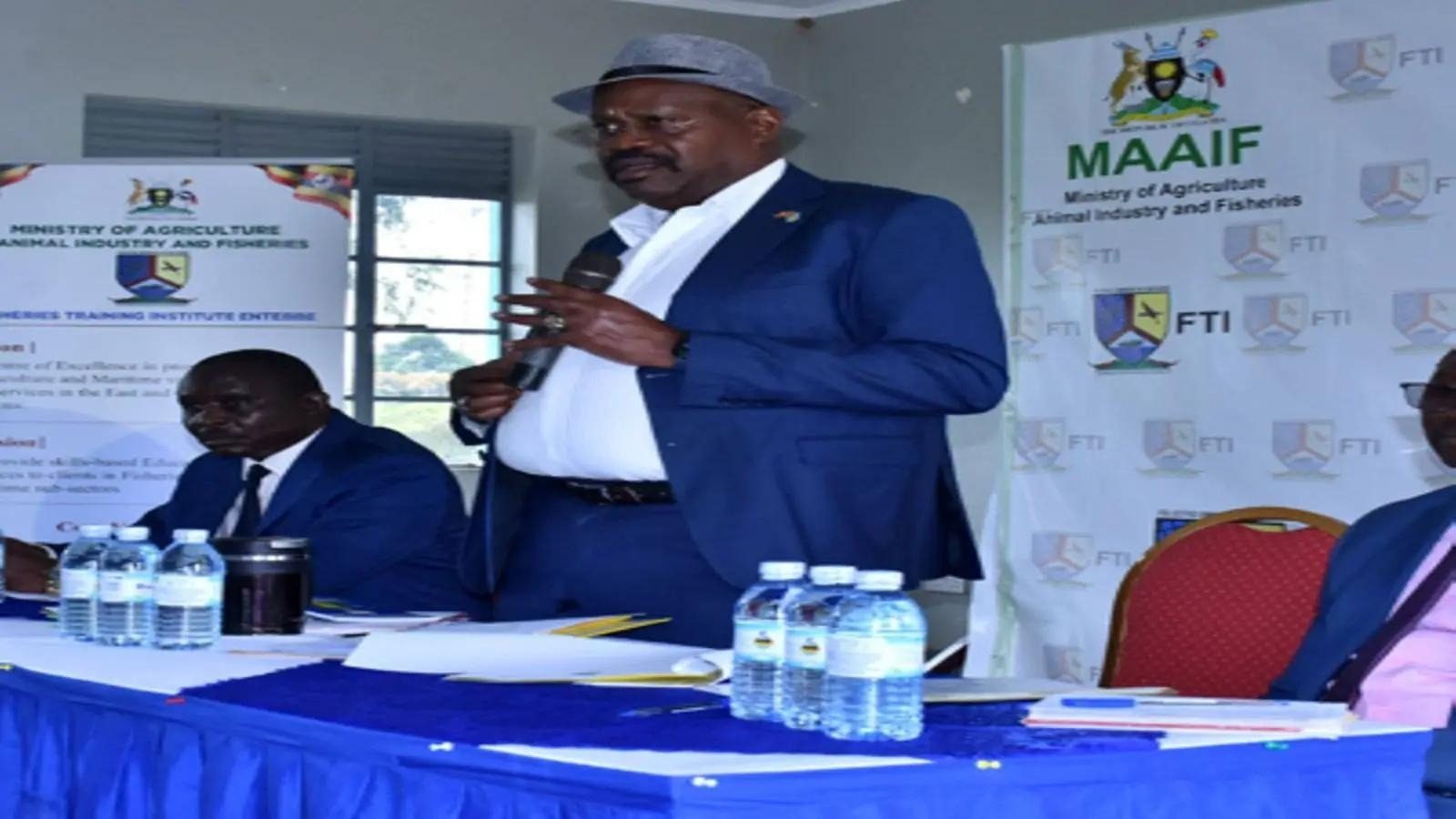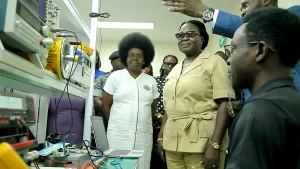Share
What you must be aware of:
The new governing council was welcomed by Mr. Gelvan Kisolo Lule, the principal of Bukalasa Agricultural College, who also mentioned that the college had been operating without a council for a few months.
In order to provide farmers with information about weather patterns, soils, and markets as well as advice on contemporary agricultural techniques to increase efficiency, the Ministry of Agriculture, Animal Industry, and Fisheries (MAAIF) plans to establish a National Agricultural Information System.
At the joint inauguration event of the 13th Fisheries Training Institute (FTI) and Bukalasa Agricultural College (BAC) Governing Council, conducted at the Fisheries Training Institute in Entebbe on Wednesday, the MAAIF Permanent Secretary, Maj Gen David Kasura Kyomukama, disclosed this.
When students work in agricultural extension, they should be able to use both traditional manual farming techniques and cutting-edge farming techniques that make use of smart technologies like tablets and other electronic devices. But students also have to realize that agriculture is done in the fields, not in white collar jobs, he added.
“We are assisting in the restoration of the students’ knowledge of modern farming methods by providing support to these institutions,” he continued. We also need fisheries officials and extension workers, among others, so they have opportunities because the government extension system is deficient. They also need to comprehend the commercialization that is the goal of Uganda’s agriculture production system.
He asked the governing council to place a strong emphasis on accountability and transparency—that is, the relationship between spending and activity.
The new governing council was welcomed by Mr. Gelvan Kisolo Lule, the principal of Bukalasa Agricultural College, who also mentioned that the college had been operating without a council for a few months.
“This will now enable us to manage some of the decisions that are pending for implementation,” he stated, noting that “the College is concentrating more these days on making sure that the individuals we train possess more than just academic papers.”
“We focus more on practical training sessions than theory,” stated Willy Ofono Osinde, principal of the Fisheries Training Institute, “and we are now planning to refurbish the Fish Processing Laboratory, which not only brings in income for the institution but also provides students with more relevance in the market.”
Each of the newly established Governing Councils has sixteen members.












